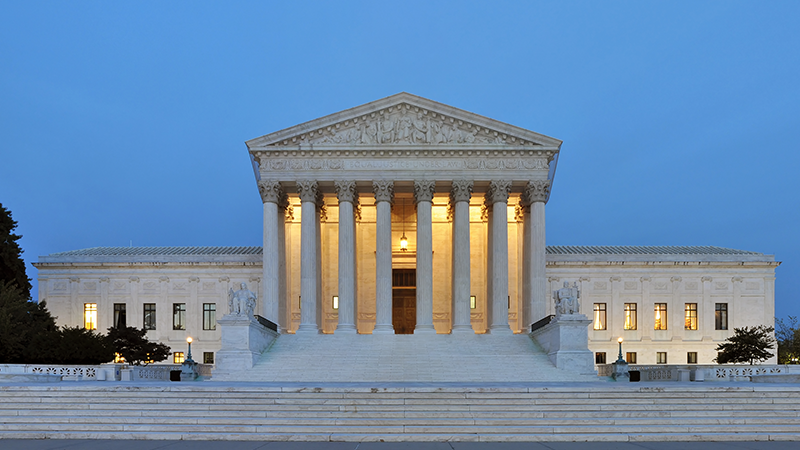US Supreme Court rules web designers can’t be compelled to support same-sex marriage

The U.S. Supreme Court has ruled in favour of a web designer in Colorado who said she would decline to create websites to celebrate same-sex weddings because of her belief in real marriage.
Lorie Smith said her belief was grounded in her Christian faith. However, the case was not decided on religious freedom but freedom of speech, which is protected under the First Amendment to the US Constitution.
The problem for Smith arose because Colorado has a law that requires those offering services to the public not to discriminate against people on the grounds of ‘sexual orientation’, among other characteristics. Many states make an exception in such public accommodation laws for ‘expressive’ goods and services that involve custom artistic creation, such as web design. This prevents artists and designers being compelled to produce creative work in violation of their beliefs, or else having to leave the market altogether.
Colorado does not include such an exception, leaving conscientious designers like Smith excluded from the market.
The state’s Solicitor General Eric Olson defended the law, saying that companies are free to decide whether to provide services for weddings, but if they do they must provide them for all weddings, not just those in line with their beliefs. He did not agree that this amounted to compelled or regulated speech as they could choose not to provide services for weddings at all.
Throughout this case, LGBT activists have claimed that businesses should be forced to express support for same-sex marriage.
Thankfully, the Court disagreed. In a 6-3 decision that split between the conservative majority and liberal minority, the judges effectively ruled that the First Amendment did not permit those in expressive occupations to be driven out of the market due to their beliefs. The outcome was similar to the Ashers Baking Company case in the UK, where the Supreme Court ruled that the company was within its rights to decline to decorate a cake with a pro-gay marriage campaign slogan because it would amount to compelled speech.
This is a huge victory for supporters of traditional marriage. It establishes that, in America, anti-discrimination laws cannot be used to compel people in creative professions to express support for same-sex marriage. The crucial freedom to dissent, without having your livelihood taken away, has been protected.
